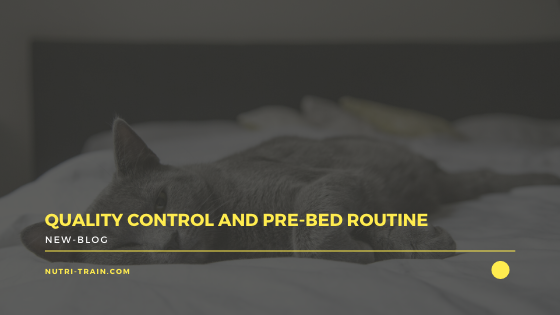|
When we were kids, we adored our pre-bed routine. However, our parents didn’t develop this routine for fun, they understood its necessity for getting us ready for bed, both mentally and physically. Getting us all clean and warm, wrapped in fresh (and cool) PJ’s, before softly reading to us about our favourite characters helped us transition into our sleep state. But, there’s more, pre-bedtime routines in children[1] have shown to help positively improve developmental outcomes beyond sleep, like language development, literacy, emotional and behavioural regulation, attachment, and general functioning. And, although these are child studies, we believe they ring true even into adulthood as we look to constantly improve ourselves as human beings. Yet, as we’ve grown older, we’re simply making it up as we go along when it comes to our bedtime, hoping the simple act of getting into bed is enough. A pre-bedtime routine is personal, which makes it extremely effective. Here are things to consider when creating YOUR routine: 1. Organising your social life - if your social life is hectic, then it’s important to have some strategies in place, especially for the next day. Socialising is important for our mental health, but so is your sleep. We’d suggest making a few “on the go” breakfasts so you can maximise your sleep. Smashed boiled eggs and avocado is a great option, nuts and yogurt also work perfectly too. 2. Planning your sleep like you do your workouts - scheduling a few early nights each week, just like your workouts, is a great way to maximise both. I’ll often ask my client to schedule an early night the night before our sessions – so I know they’re truly rested and ready. 3. More actual time in your bed - this is actually one of the best places to start. Your body and mind need the time to slow down, and so jumping into bed 30-45 minutes before your bedtime will help you unwind. 4. Switching off all electronics - Turning your device to DND around 30-45 mins and airplane mode before your bedtime is one of NON-NEGOTIABLES. The blue light emitted by our devices affects melatonin secretion (your sleep hormone) keeping us awake later into the night[2]. 5. Upgrade your bed - according to a sleepcouncil.org.uk online poll, a comfortable bed is the best tip for improving your night’s sleep. The quality of your mattress is extremely important and might seem like a huge investment, but since the general advice is to usually change it every 7-10 years, is it really that big of an ask? For now, though, you can always flip it ;) 6. Temperature control - as I’ve discussed in many of my talks on sleep, our body temperature drops during the first initial sleep stages, which helps us fall asleep. Dropping the temperature to 65 and 72 degrees, taking a warm bath (not hot) 90 minutes before bedtime (increasing your temperature which makes you sleepy as your body tries to regulate the heat and then will naturally drop before bed) or opening your window slightly to rid the room of hot air 15 minutes before getting into bed are great techniques to help achieve this.
7. Avoiding Coffee, alcohol and other stimulants - this is a very tricky one and probably the most personal. Everyone is different, as each of our guts metabolises caffeine differently, allowing some people to clear caffeine out their body very quickly, others not much, cutting out caffeine and any other stimulants 8-10 hours before bedtime is definitely worth it. 8. Writing - there’s no need to start a novel or pen your life’s memoirs, however, we all have a to-do list, and a bunch of thoughts plaguing our subconscious mind. Many people express how they couldn’t get to sleep, because they have too much going on, and keeping a notepad and a pen, next to your bed at night and jotting down a few things before turning over, can do wonders for your anxiety and wondering mind. 9. Packing your bag - Packing your bag for the next day, will free up some extra time in the morning, plus it’s usually at the top of people’s to-do list, which will help ease some pressure on yourself! 10. Schedule a regular bed-time – your sleep-wake cycle is synced to your habits which is why a regular bed- and wake-time is key to long-term health. Which is why sleeping in on the weekend after depriving yourself all week isn’t going to work. Yes, it’ll take the edge off but a ‘more’ regular and consistent bedtime and wake-up time are best. Do you have anything to add to this list? I’d love to hear some of your bedtime routine suggestions. Reach out below! Speak soon, JC. [1] https://www.ncbi.nlm.nih.gov/pubmed/29195725 [2] https://www.sleep.org/articles/ways-technology-affects-sleep/
0 Comments
Leave a Reply. |
AuthorsJC and The Nutri-Team Archives
November 2020
Categories
All
|

 RSS Feed
RSS Feed
